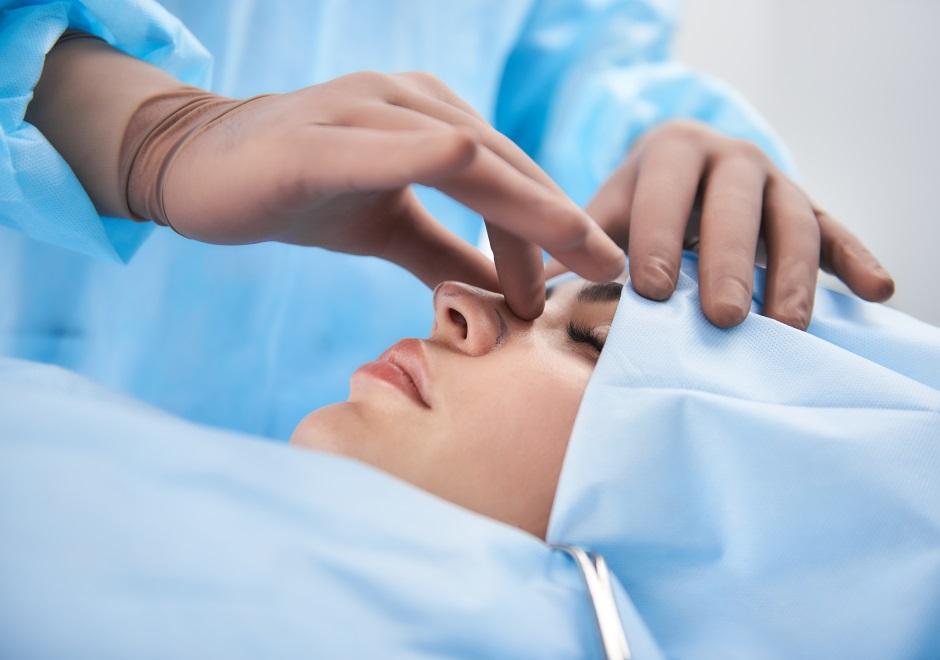
Rhinoplasty surgery in riyadh, while transformative, requires a dedicated recovery period for optimal healing and results. For patients in Riyadh, navigating the post-operative phase with specific considerations for the local climate and lifestyle is crucial. This guide provides comprehensive recovery tips tailored for rhinoplasty patients in Riyadh.
Immediate Post-Operative Care:
The initial days following rhinoplasty are critical. Expect swelling, bruising, and discomfort around the eyes and nose. Your surgeon will typically provide:
- Nasal Splint and Packing: A splint will support the new nasal shape, and packing will minimize bleeding. Follow your surgeon's instructions for care.
- Pain Management: Prescribed pain medication will help manage discomfort. Take it as directed.
- Cold Compresses: Apply cold compresses to the eye area to reduce swelling and bruising.
- Elevated Head: Sleep with your head elevated on several pillows to minimize swelling.
- Limited Activity: Rest and avoid strenuous activities for the first few days.
Managing Swelling and Bruising:
Swelling and bruising are normal and will gradually subside. To aid this process:
- Avoid Strenuous Activity: Refrain from heavy lifting, exercise, and any activities that increase blood flow to the face.
- Stay Hydrated: Drink plenty of water to promote healing and reduce swelling.
- Limit Salt Intake: Reduce salt consumption to minimize fluid retention and swelling.
- Gentle Cleaning: Gently clean the area around your nose as instructed by your surgeon.
- Avoid Sun Exposure: Protect your nose from direct sunlight, especially during Riyadh’s intense heat, as it can worsen swelling.
Riyadh’s Climate Considerations:
Riyadh's arid climate presents unique challenges during rhinoplasty recovery.
- Dryness: The dry air can cause nasal dryness and discomfort. Use a humidifier to add moisture to the air.
- Dust and Pollen: Protect your nose from dust and pollen, which can irritate the healing tissues. Wear a mask when outdoors, especially during sandstorms.
- Heat: Avoid prolonged exposure to the intense heat, as it can increase swelling and discomfort. Stay in cool, air-conditioned environments.
- Hydration: Due to the dry heat, maintain excellent hydration. Drink plenty of water throughout the day.
Diet and Nutrition:
A healthy diet supports healing.
- Nutrient-Rich Foods: Consume fruits, vegetables, and lean proteins to provide essential nutrients for tissue repair.
- Avoid Spicy Foods: Spicy foods can increase nasal congestion and irritation.
- Soft Foods: During the initial days, opt for soft foods that require minimal chewing.
Follow-Up Appointments:
Regular follow-up appointments with your surgeon are crucial for monitoring healing and addressing any concerns.
- Splint Removal: Your surgeon will remove the splint and packing after a specified period.
- Suture Removal: If you had open rhinoplasty, sutures will be removed.
- Progress Monitoring: Your surgeon will assess your healing progress and provide further instructions.
- Addressing Concerns: Don't hesitate to ask questions or express any concerns you may have.
Emotional Well-being:
Rhinoplasty recovery can be emotionally challenging.
- Patience: Be patient with the healing process, as final results may take several months to fully manifest.
- Support System: Seek support from family and friends.
- Positive Mindset: Maintain a positive outlook and focus on the long-term benefits of the procedure.
Avoiding Complications:
To minimize the risk of complications:
- Follow Instructions: Adhere to your surgeon's post-operative instructions meticulously.
- Avoid Nose Picking: Refrain from picking or touching your nose.
- Gentle Blowing: If you must blow your nose, do so gently.
- Medication Adherence: Take prescribed medications as directed.
- Report Concerns: Report any signs of infection, excessive bleeding, or unusual pain to your surgeon immediately.
By following these recovery tips and taking into account the specific considerations of Riyadh's climate and lifestyle, you can promote optimal healing and achieve excellent rhinoplasty results.

